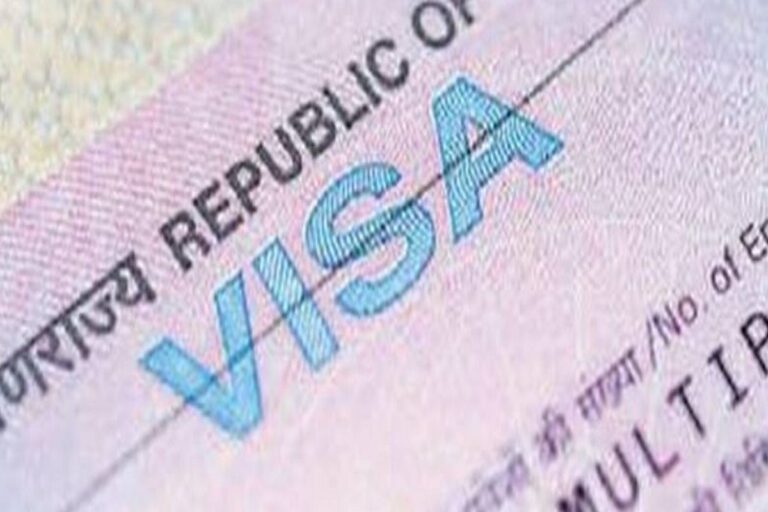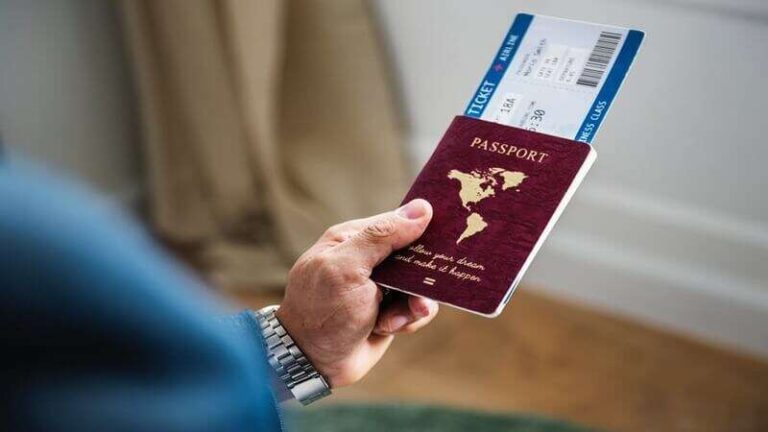Canada Visa For Romania And Slovakia Citizens:
CANADA VISA FOR ROMANIA AND SLOVAKIA CITIZENS:
Are you a citizen of Romania or Slovakia dreaming of exploring the beauty of Canada? Look no further, because this article is here to guide you through the process of obtaining a Canada visa!
Whether you’re planning a vacation, studying abroad, or seeking employment opportunities, understanding the eligibility requirements and application process is crucial. In this article, we will walk you through the different types of Canada visas available, the steps to apply, and the fees and processing times involved.
We will also cover important information about travel insurance, health requirements, and useful travel tips specifically tailored for Romania and Slovakia citizens. Additionally, we will provide resources for further information and assistance to ensure that your visa application process goes smoothly.
So, let’s get started on your exciting journey to Canada!
Key Takeaways
- Eligibility requirements for Canada visa include a valid passport, passport-sized photographs, proof of financial stability, and accurate completion of application forms.
- There are different types of Canada visas, including Temporary Resident Visa, Work Permit, and Study Permit, each allowing specific activities for a limited period.
- The Temporary Resident Visa allows citizens of Romania and Slovakia to visit Canada for a limited period and requires a valid passport, proof of funds, and a letter of invitation if applicable.
- The Work Permit provides opportunities for employment in Canada, with part-time and full-time options available, and offers the benefits of Canadian work experience and enhanced future employment prospects.
Eligibility Requirements for the Canada Visa Program
If you’re from Romania or Slovakia, you’ll be excited to know the eligibility requirements for the Canada Visa Program! To apply for a CANADA VISA FOR ROMANIA CITIZENS & CANADA VISA FOR SLOVAKIA CITIZENS, there are some documents you will need to submit.
First, you will need a valid passport. Make sure your passport is not expired and has at least six months of validity remaining. Additionally, you will need to provide two recent passport-sized photographs. These photos should meet the specified requirements, such as size and background color.
Next, you will need to show proof of financial stability. This is an important requirement to ensure that you can support yourself during your stay in Canada. You may be asked to provide bank statements for the past three months, proof of employment, or a letter from your employer stating your salary and position. It is crucial to demonstrate that you have enough funds to cover your expenses, such as accommodation, transportation, and daily living costs.
Moreover, you will need to fill out the appropriate application forms accurately and honestly. Any false information provided may lead to visa rejection. It is important to double-check all the information before submitting your application.
In conclusion, to apply for a Canada visa as a citizen of Romania or Slovakia, you will need to gather the required documents and provide proof of financial stability. Make sure to follow all the instructions and guidelines provided by the Canadian immigration authorities. Once you understand the eligibility requirements, you can move on to understanding the different types of Canada visas.
Understanding the Different Types of Canada Visas
In this section, you’ll learn about the different types of Canada visas. The three key types are the Temporary Resident Visa, Work Permit, and Study Permit.
These visas allow you to visit, work, or study in Canada for a specific period of time.
Temporary Resident Visa
To obtain a Temporary Resident Visa, citizens of Romania and Slovakia have the opportunity to experience the diverse and vibrant culture of Canada firsthand. Whether you are planning a vacation or visiting friends and family, this visa allows you to stay in Canada for a limited period. The visa application process is straightforward and requires certain documents, such as a valid passport, proof of funds, and a letter of invitation if applicable. To make things easier, here is a helpful table outlining the basic requirements:
| Requirement | Romania | Slovakia |
|---|---|---|
| Valid Passport | Yes | Yes |
| Proof of Funds | Yes | Yes |
| Letter of Invitation | If applicable | If applicable |
Once you have obtained your Temporary Resident Visa, the next step is to explore the possibility of obtaining a work permit to extend your stay in Canada.
Work Permit
Once you have your Temporary Resident Visa, the next step is to explore the possibility of obtaining a work permit to extend your stay in Canada.
With a work permit, you can take advantage of the numerous work opportunities that Canada has to offer. The country has a thriving job market, with a high demand for skilled workers in various industries such as technology, healthcare, and engineering. Whether you are looking for part-time or full-time employment, there are plenty of options available.
Additionally, having Canadian work experience can greatly enhance your resume and increase your chances of finding employment in the future. So, take the time to research the job market and find the right work opportunity for you.
Transitioning into the subsequent section about the ‘study permit’, it’s important to note that pursuing further education in Canada is another great way to enhance your skills and broaden your horizons.
Study Permit
Consider exploring the option of obtaining a study permit. This permit will not only allow you to further your education but also provide you with an opportunity to immerse yourself in the rich and diverse academic culture of Canada.
Studying in Canada has numerous benefits. You can gain a world-class education, experience a multicultural environment, and enhance your career prospects. The top universities in Canada for international students, such as University of Toronto, McGill University, and University of British Columbia, offer excellent academic programs and resources.
By studying in Canada, you can expand your knowledge, build valuable connections, and develop a global perspective. So why not seize this chance to broaden your horizons and embark on an exciting educational journey in Canada?
Now, let’s transition into the subsequent section about how to apply for a Canada visa.
How to Apply for a Canada Visa
Make sure you have all the necessary documents before applying for a Canada visa. The Canada visa application process requires you to submit several supporting documents. First and foremost, you will need a valid passport with a minimum of six months validity from the date of your intended departure from Canada.
Additionally, you will need to provide proof of financial support to cover your expenses during your stay in Canada, such as bank statements or sponsorship letters. It is also important to include a letter of acceptance from a recognized Canadian educational institution if you are applying for a study permit.
In addition to these documents, you will need to complete the appropriate application forms, which can be found on the official Government of Canada website. It is crucial to fill out these forms accurately and honestly to avoid any delays or complications in the processing of your Canada visa application.
Once you have gathered all the necessary documents and completed the application forms, you can submit your application online or in person at a Visa Application Centre.
After you have submitted your application, it is important to be aware of the processing times and fees associated with your Canada visa. The processing times can vary depending on the type of visa you are applying for and the volume of applications received. It is recommended to check the official website or consult with the Visa Application Centre for the most up-to-date information on processing times.
Additionally, there are fees associated with the visa application, which must be paid at the time of submission. These fees are non-refundable, even if your application is not approved.
In conclusion, make sure you have all the necessary documents before applying for a Canada visa. Gather your supporting documents, complete the application forms accurately, and be aware of the processing times and fees. Once you have submitted your application, you can await the outcome of your Canada visa application.
Processing Times and Fees
Now that you know how to apply for a Canada visa, let’s talk about the processing times and fees involved in the visa application process.
When it comes to the processing times, it’s important to note that they can vary depending on various factors such as the type of visa you are applying for and the current volume of applications. Generally, it is advisable to apply well in advance of your planned travel dates to allow for any unexpected delays. The processing times can range from a few weeks to several months, so it’s crucial to plan accordingly.
In terms of fees, there are several costs associated with obtaining a Canada visa. The main fee is the application processing fee, which is non-refundable and must be paid when submitting your application. Additionally, there may be fees for biometrics collection, which is a requirement for most visa applicants. It’s important to check the latest fee schedule on the official Canadian government website to ensure you have the accurate information.
Once you have submitted your visa application and paid the necessary fees, it’s a waiting game. While waiting for the processing times to complete, you can use this time to gather any additional supporting documents that may be requested by the immigration authorities.
With the visa application process underway, it’s also essential to start considering your travel insurance and health requirements. These aspects are crucial for ensuring a safe and worry-free trip to Canada.
Travel Insurance and Health Requirements
It’s crucial to prioritize your travel insurance and health requirements when planning a trip to Canada. As a citizen of Romania or Slovakia, it’s important to ensure that you have adequate travel insurance coverage for your visit.
Travel insurance provides financial protection in case of unexpected events such as trip cancellations, medical emergencies, or lost baggage. It can also cover emergency medical expenses, including hospital stays, doctor visits, and medication. When choosing travel insurance, consider the duration of your stay, the activities you plan to engage in, and any pre-existing medical conditions you may have.
There are several health insurance options available for Romania and Slovakia citizens visiting Canada. One option is to purchase a comprehensive travel insurance plan that includes coverage for medical expenses, trip cancellations, and baggage loss. Another option is to check if your existing health insurance policy in Romania or Slovakia provides international coverage. Additionally, some credit cards offer travel insurance benefits if you use them to book your trip.
It’s important to carefully read and understand the terms and conditions of any insurance policy you choose, including any exclusions or limitations.
In the next section, we will provide travel tips for Romania and Slovakia citizens in Canada, including information on transportation, accommodation, and popular tourist attractions. Remember, preparing for your trip by taking care of your travel insurance and health requirements is essential to ensure a smooth and enjoyable experience in Canada. So, let’s move on to the next section and discover the best ways to make the most of your time in this beautiful country.
Travel Tips for Romania and Slovakia Citizens in Canada
When planning your trip to Canada, it is essential to be aware of the travel tips that can enhance your experience as a citizen of Romania or Slovakia. Canada offers a wide range of travel attractions that are worth exploring during your visit. From the stunning Rocky Mountains in Alberta to the vibrant city life of Toronto, there is something for everyone. Make sure to plan your itinerary carefully to make the most out of your time in this beautiful country.
Before you embark on your journey, it is important to familiarize yourself with the cultural differences between Romania or Slovakia and Canada. Canadians are known for their politeness and friendliness, so don’t be surprised if strangers strike up a conversation with you. It is also customary to tip service workers, such as waiters and taxi drivers, around 15-20% of the bill. Additionally, Canada is a diverse country with a multicultural population, so be respectful and open-minded towards different cultures and traditions.
To help you plan your trip, here is a table highlighting some popular travel attractions in Canada:
| Travel Attraction | Location |
|---|---|
| Niagara Falls | Ontario |
| Banff National Park | Alberta |
| Old Quebec | Quebec |
| Vancouver | British Columbia |
| Peggy’s Cove | Nova Scotia |
These are just a few of the many amazing places you can visit during your stay in Canada. Whether you’re a nature lover, history enthusiast, or city explorer, there is something for everyone.
As you plan your trip and enjoy your time in Canada, keep in mind that it is possible to extend your stay if you find yourself wanting to explore more. The next section will provide information on how to do just that.
Extending Your Stay in Canada
To make the most of your time in Canada, why not consider extending your stay and exploring even more of this beautiful country? Canada offers a variety of options for extending your visa duration and staying longer. Here are some important things to know about extending your stay in Canada:
- Visa Extension: If you wish to extend your stay in Canada, you must apply for an extension before your current visa expires. Immigration, Refugees and Citizenship Canada (IRCC) provides detailed information on how to apply for a visa extension.
- Eligibility Criteria: To be eligible for a visa extension, you must meet certain criteria set by IRCC. These criteria may include maintaining valid status, having sufficient funds to support yourself during your extended stay, and demonstrating a valid reason for staying longer in Canada.
- Immigration Policies: Canada’s immigration policies for long-term stay vary depending on the type of visa you hold. Some visas may allow for easy extension, while others may have stricter requirements. It is essential to familiarize yourself with the specific policies that apply to your visa category.
- Consultation with Immigration Experts: If you’re unsure about the visa extension process or have any concerns, it’s recommended to seek advice from immigration experts or consultants who specialize in Canadian immigration law. They can provide guidance and ensure that you have all the necessary documents and information for a successful visa extension application.
To learn more about extending your stay in Canada, resources for further information and assistance are available. These resources will provide you with detailed guidelines and answer any additional questions you may have on the visa extension process.
Resources for Further Information and Assistance
If you’re feeling overwhelmed and uncertain about the visa extension process, don’t worry! Help is available through various resources that can provide you with the information and assistance you need to navigate through the complexities of extending your stay in Canada.
One valuable resource you can turn to is immigration lawyers. These professionals specialize in Canadian immigration law and can provide you with expert guidance and support throughout the visa application process. They can help you understand the requirements, prepare the necessary documentation, and represent you if needed. Immigration lawyers have extensive knowledge and experience in dealing with visa extensions, making them a valuable ally in your journey.
Another helpful resource is the official website of Immigration, Refugees and Citizenship Canada (IRCC). The IRCC website offers comprehensive information on visa extensions, including eligibility criteria, required documents, and step-by-step instructions. They also have a tool called the “Come to Canada” wizard, which can help you determine your eligibility and guide you through the application process.
In addition to immigration lawyers and the IRCC website, there are also various online forums and communities where you can connect with other individuals who have gone through the visa extension process. These forums provide a platform for sharing experiences, tips, and advice, which can be invaluable in helping you navigate the complexities of extending your stay in Canada.
Lastly, do not hesitate to contact the consulate or embassy of your home country in Canada. They can provide you with information and assistance specific to citizens of Romania and Slovakia, ensuring that you have the most up-to-date and accurate information regarding visa extensions.
By utilizing these resources, you can confidently navigate the visa extension process and ensure that you have all the information and support you need. Whether it’s consulting with immigration lawyers, visiting the IRCC website, joining online forums, or reaching out to your consulate, remember that help is available to make your stay in Canada a smooth and successful one.
| Resource Name | Description | Contact Information |
|---|---|---|
| Immigration Lawyers | Experts in Canadian immigration law who can provide guidance and support throughout the visa application process. | Contact your local immigration law firm or search online directories for reputable lawyers. |
| IRCC Website | Official website of Immigration, Refugees and Citizenship Canada. Offers comprehensive information on visa extensions. | Visit IRCC website |
| Online Forums | Online platforms where you can connect with individuals who have gone through the visa extension process. | Search for Canadian immigration forums and communities online. |
| Consulate/Embassy | Contact the consulate or embassy of your home country in Canada for information specific to citizens of Romania and Slovakia. | Search online for the contact information of the consulate or embassy in your area. |
Frequently Asked Questions
What are the specific eligibility requirements for Romania and Slovakia citizens applying for a Canada visa?
To apply for a Canada visa, Romania and Slovakia citizens must meet specific eligibility requirements. These requirements include providing necessary documents, demonstrating financial stability, having a valid passport, and meeting health and character requirements. The processing time for Canada visa applications varies.
Are there any age restrictions for the different types of Canada visas?
There are no specific age restrictions for the different types of Canada visas. The eligibility requirements vary depending on the type of visa you are applying for.
Can I apply for a Canada visa online or do I need to visit the Canadian embassy in Romania or Slovakia?
You can apply for a Canada visa online from Romania or Slovakia. The online visa application process makes it convenient for you to submit your application and fulfill the visa application requirements.
How long does it typically take for a Canada visa application to be processed?
It typically takes several weeks for Canada visa applications to be processed. Factors such as the type of visa, completeness of application, and current workload can affect processing time.
What are the fees associated with applying for a Canada visa for Romania and Slovakia citizens?
The fees for applying for a Canada visa for Romania and Slovakia citizens vary depending on the type of visa. It is important to pay attention to the common reasons for visa application rejections and to follow tips for preparing a strong application.
Conclusion
If you’re a citizen of Romania or Slovakia and planning to visit Canada, it’s important to familiarize yourself with the eligibility requirements and types of visas available.
Applying for a Canada visa can be done online, and it’s essential to consider the processing times and fees involved.
Additionally, make sure to have travel insurance and meet the health requirements for your trip.
Once in Canada, follow the travel tips provided and, if needed, explore options for extending your stay.
For more information and assistance, refer to the available resources.






